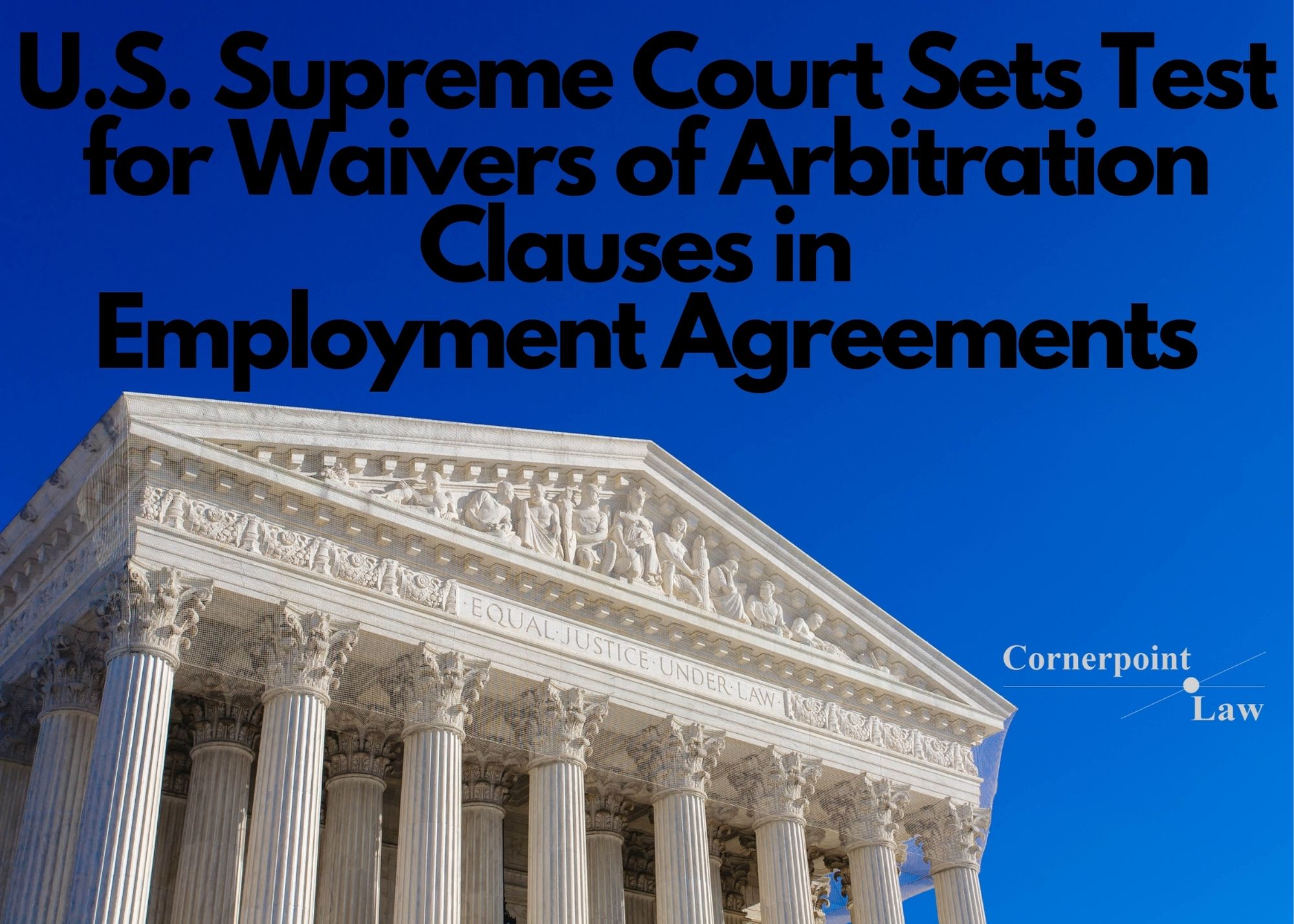Washington’s Consumer Protection Act: No Materiality Required
October 30, 2020
Unauthorized use and/or duplication of blogposts without express and written permission is strictly prohibited. Excerpts and links may be used, provided that full and clear credit is given, and with appropriate and specific direction to the original content.
The author of this post can be reached by phone at 206-693-2718 or by email.
Little Mistakes Can Have Big Repercussions
By Stacia Hofmann
Cornerpoint Case Pops are dedicated to summarizing relevant, new cases — and their business and risk management lessons — in bite-size posts.
The Consumer Protection Act (CPA), RCW Ch. 19.86, governs virtually everyone doing business in the State of Washington. Given its breadth, as well as its unusual and relatively severe civil remedies, I previously posted why business owners need to understand the types of activities that potentially violate the CPA.
In September 2020, the Washington Supreme Court revisited the requirements for a CPA claim, and confirmed that a prohibited unfair or deceptive act need not be material. In other words, even relatively minor misrepresentations can lead to CPA claims if they are unfair or have the capacity to deceive a substantial portion of the public.
The Case: Young v. Toyota Motor Sales U.S.A., Washington Supreme Court (No. 97576-1 September 24, 2020)
As a refresher, under the CPA, a deceptive act in trade or commerce can occur even if there is no intent to deceive, and even if there is no actual deception, so long as the statement, omission, or action impacts the public and has the capacity to mislead a reasonable consumer.1 To prevail on a CPA claim, the consumer has to prove that the violation caused economic damages.2
Case Background
 A buyer purchased a new Toyota pickup truck that was advertised as having a temperature display on the rearview mirror. The label affixed to the vehicle also stated that a temperature display was on the rearview mirror.
A buyer purchased a new Toyota pickup truck that was advertised as having a temperature display on the rearview mirror. The label affixed to the vehicle also stated that a temperature display was on the rearview mirror.
These representations were not true: the truck that the buyer and 146 other consumers purchased did not have a temperature display on the rearview mirror. Toyota realized the marketing mistake after about two months and corrected the advertisements and labels. The vehicle’s purchase price, about $36,000, did not change after the correction because the mistake was made in the marketing materials, not in the price calculation. Had Toyota included a rearview mirror temperature display feature, the cost to Toyota at the time of the truck’s manufacture would have been about $10.
The buyer and Toyota could not agree on a resolution, and the buyer brought a CPA lawsuit against Toyota. The case proceeded to a bench trial, where a judge, rather than a jury, decided whether the buyer proved his case.
The Misrepresentation Was Not Significant…
At trial, the judge sided with Toyota. The judge found, among other things, that although there was a misrepresentation, the misrepresentation was not material. The judge determined that the temperature display on the rearview mirror – a $10 part – was not comparatively significant. In other words, the misrepresentation was so minor that it was unlikely to affect a reasonable consumer’s conduct or decision one way or another about such a large purchase.
 The buyer appealed, and the Washington Court of Appeals agreed that the misrepresentation was immaterial. The Washington Court of Appeals also determined that because the misrepresentation was insignificant, there was therefore no unfair or deceptive act.
The buyer appealed, and the Washington Court of Appeals agreed that the misrepresentation was immaterial. The Washington Court of Appeals also determined that because the misrepresentation was insignificant, there was therefore no unfair or deceptive act.
…But Significance Is Not Required
The buyer appealed again, this time to the Washington Supreme Court. The Washington Supreme Court found that the lower court judges erred when they determined that the insignificance of the misrepresentation necessarily meant that there was no unfair or deceptive act.
The Washington Supreme Court decided that instead, while an unfair or deceptive act is required to prove a CPA claim, the unfair or deceptive act need not be material or significant. Even seemingly minor unfair or deceptive acts can violate the CPA.
That being said, the Washington Supreme Court agreed that at a trial, a judge or a jury could potentially analyze the materiality of the error in determining whether the consumer should ultimately win their CPA claim, and if so, how much should be awarded. Materiality just can’t be a requirement.
So the minor misrepresentation was a deceptive act. However, the Washington Supreme Court found no error in the trial judge’s conclusion that the buyer failed to prove that the incorrect description of the rearview mirror’s features caused damages. The buyer won the battle, but Toyota won the overall appeal.
Key Takeaways
The case is a cautionary reminder that even a minor misrepresentation in marketing materials can potentially give rise to a CPA claim and costly litigation. While Toyota ultimately prevailed on the CPA claim, it had to go through a trial and two appeals to do so. Toyota is well-funded and had the means to litigate, but many small businesses may not be so similarly situated. By understanding that even unintentional marketing mistakes can lead to CPA claims, business owners can better manage the risks of their various marketing efforts.
Email or call me to see if Cornerpoint can help with your questions about the CPA.
This blog is for informational purposes only and is not guaranteed to be correct, complete, or current. The statements on this blog are not intended to be legal advice, should not be relied upon as legal advice, and do not create an attorney-client relationship. If you have a legal question, have filed or are considering filing a lawsuit, have been sued, or have been charged with a crime, you should consult an attorney. Furthermore, statements within original blogpost articles constitute Stacia Hofmann’s opinion, and should not be construed as the opinion of any other person. Judges and other attorneys may disagree with her opinion, and laws change frequently. Neither Stacia Hofmann nor Cornerpoint Law is responsible for the content of any comments posted by visitors. Responsibility for the content of comments belongs to the commenter alone.




